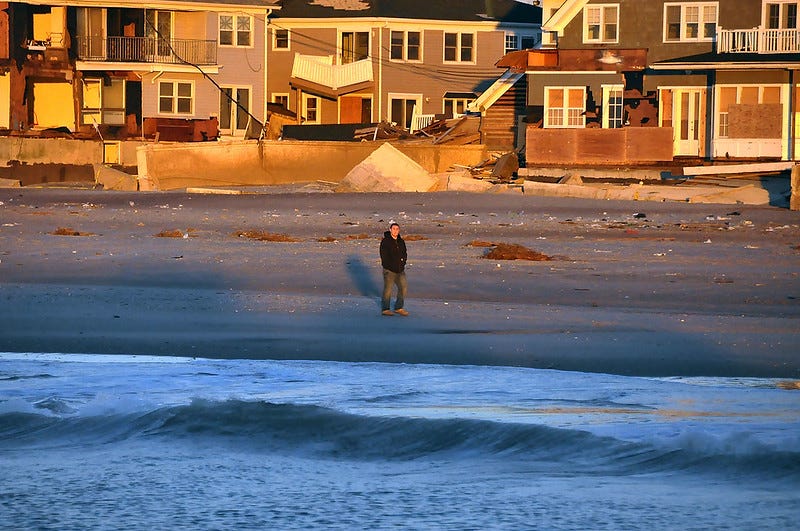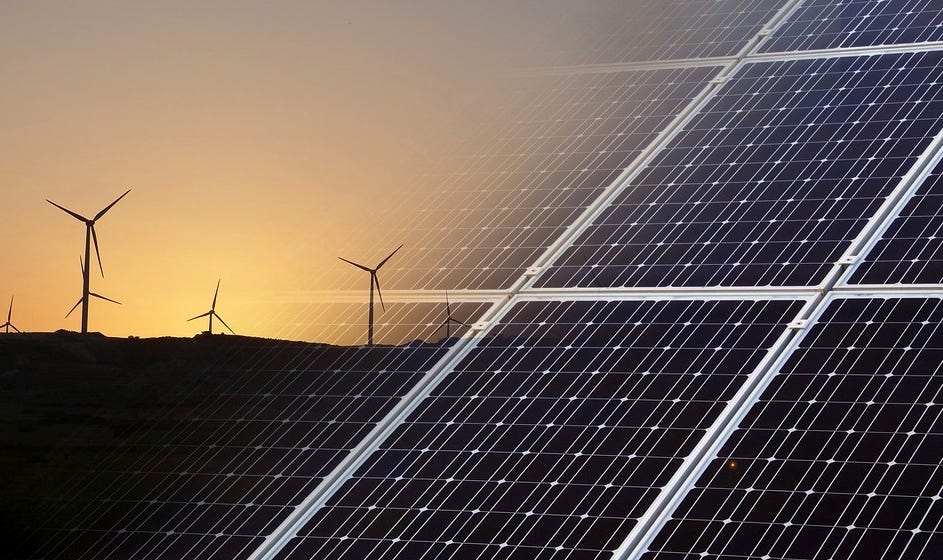A St. Patrick's Day toast to Callaway Climate Insight's sustainable army
Happy early St. Patricks's Day. This weekend is our four-year anniversary. Please help us celebrate by sharing this newsletter with your colleagues, and subscribing.
Today’s edition is free. To read our insights and support our great climate finance journalism five days a week, subscribe now for full access.
Markets were plunging, Covid was spreading, and Donald Trump was still president as we launched Callaway Climate Insights four years ago this weekend with an entrepreneur’s optimism and a St. Patrick’s Day toast.
After all, ‘How bad can it get?’ we asked.
Thousands of subscribers and hundreds of editions later, we’re happy to report that while it’s been a wilder ride than any of us expected, the climate finance community we’ve built with each of you is growing and more people than ever are investing in the idea of a renewable energy transition.
To our fabulous writers and editors, to those behind our investor events in Dublin, to the brilliant climate finance entrepreneurs we’ve spoken with and profiled, to those international media, particularly The Independent in London, which have published our columns, we are grateful to have crossed paths.
Markets evolve over time. The Covid plays of 2020 are mostly down now while little-known trades called catastrophe bonds are suddenly a hot topic, as we chronicle below. The electric vehicle revolution is on hold while investments in nuclear fusion or micro generators are taking off. Oil production is still surging but solar and wind are grabbing electricity capacity at astonishing levels. ESG is now a front line in the culture wars, but sustainable investing is as hot as ever.
Behind it all are the entrepreneurs and investors who see profit, potential and purpose in helping the world adapt to the growing threat of climate change. As we look to an uncertain future of elections and extreme weather, we do so with that original optimism intact. A toast to all of you. Thanks for reading. Sláinte!
Don’t forget to contact me directly if you have suggestions or ideas at dcallaway@callawayclimateinsights.com.
Follow us . . . .
Twitter | LinkedIn | Facebook | Instagram
Zeus: Betting against climate change is the ultimate risk arbitrage play

. . . . A growing market for catastrophe bonds is the new game on Wall Street, as hedge funds try to outwit insurance companies in the business of predicting extreme weather events, David Callaway writes from New York. The $45 billion cat bond market proved the most successful strategy among hedge funds last year, as investors take the other side of the bet that major storms will devastate a specific area, such as Florida or Texas or California. But betting against climate change is like betting against the house in a casino. You play long enough, you’re going to get burned. . . .
Thursday’s subscriber insights

For the future of electric trucking, look east
. . . . Where China goes on EVs is truly worth watching. It has developed the biggest home market and is now aggressively pushing to sell abroad. And so it’s interesting to note that in the current EV desert — electrified commercial vehicles — they are rapidly picking up steam. Meanwhile, the Biden administration is trying to buck things up over here. Read more. . . .
Home energy overload? There’s an app for that
. . . . Plenty of entrepreneurs have been looking at making money from the green transition. Meet one of the latest: so-called “rebate aggregators” who let consumers skip all the hunting down of government incentives. Read more here. . . .
Editor’s picks: BlackRock picks up Excelsior solar portfolio; plus, climate risks on real estate listings
Excelsior Energy sells solar assets to BlackRock
BlackRock has acquired from renewable energy infrastructure investor Excelsior Energy Capital a portfolio of 38 solar energy and battery storage projects, the companies announced this week. Excelsior said in a news release that the sale to BlackRock represents Excelsior’s first exit from its inaugural fund, Excelsior Renewable Energy Investment Fund I LP. The fund, which launched seven years ago and attracted capital commitments above its $500 million target, has invested in solar, wind, and battery storage projects across 10 states. Fund assets support the generation of more than 3,000 GWh of renewable energy annually at steady state operations. The project portfolio consists entirely of operational solar and battery storage distributed generation projects with a total nameplate capacity of 89 MWDC, which formed a distinct sub-portfolio within Excelsior’s Fund I. This made these assets suitable for an exit separate from Excelsior’s other utility-scale assets held within the same fund, Excelsior said. “We believe this diversified portfolio of long-term contracted commercial and industrial solar and storage projects represents an attractive platform investment for the core, open-ended Evergreen fund,” said James Berner, managing director and head of the Americas for BlackRock’s Evergreen Infrastructure Partners Fund.
Realtor.com shows climate change risk factors
Realtor.com will start adding climate risk features, along with fire and flood risks, to its real estate listings, the company said Wednesday. The company said that the three features will show the heat, wind and air quality risks associated with a property, according to a story from USA Today. The report notes Realtor.com will show a "Heat Factor" numbering how many days the property area experiences a heat index at or above the local definition of a “hot day,” and what the average high “feels like” temperature in the typical hottest month, today and 30 years into the future. The listings also will include a "Wind Factor" feature and an "Air Factor" feature showing information about poor air quality. Realtor.com said in a news release that over 40% of homes are at severe or extreme risk when it comes to heat, wind and air quality.
Latest findings: New research, studies and projects
Climate crises impacts on the world’s stock markets
How do global stock markets react to three extreme events related to climate change: the records of GHG concentrations, the warmest years ever recorded since the pre-industrial era, and the collapse of ice shelves? The authors of this paper, titled Impact of Extreme Events Associated with the Climate Crisis on Stock Markets Worldwide, say “the results for the entire analysis period (1995-2022) are unexpected as we find that, on average, stock markets show significant positive abnormal returns to all the announcements, performing Europe better than the rest of the world.” Nevertheless, they add in the paper’s abstract, the differential analysis of the stock market reaction after the Paris Agreement shows significant negative abnormal returns to the announcements of the three extreme climate events, finding a greater negative reaction for Europe. Consequently, this research shows that the Paris Agreement has led to a significant shift in the attitude of investors towards the risks and costs associated with climate change. Authors: Karen Serrano, Universidad Metropolitana; Ana M. Ibáñez, University of Valencia Department of Corporate Finance; José Emilio Farinós Viñas, Universitat de València Department of Corporate Finance.
More of the latest research:
Words to live by . . . .
“Humanity’s war on nature is ultimately a war on ourselves. It’s time for the world to adopt a far-reaching biodiversity framework — a true peace pact with nature — and deliver a green, healthy future for all.” — António Guterres, Secretary-General of the UN.





